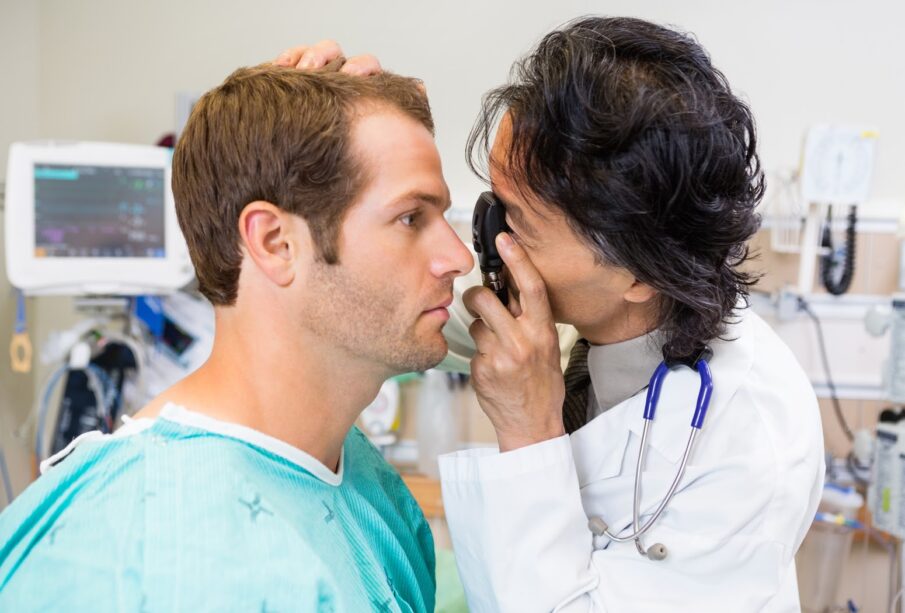Eye Injuries And Infections: How Eye Doctors Provide Emergency Care

Common Causes Of Eye Injuries And Infections
Our eyes are vulnerable to various injuries and infections, ranging from workplace accidents and sports-related incidents to chemical splashes, foreign objects, and blunt trauma. Common eye injuries can include minor corneal scratches to severe conditions like retinal detachment or traumatic cataracts, leading to symptoms such as pain, redness, light sensitivity, and vision loss. Eye infections, such as conjunctivitis, keratitis, or endophthalmitis, can also cause discomfort and serious complications. Prompt medical attention is crucial, as delayed treatment can worsen the condition and increase the risk of permanent vision impairment. Understanding the signs of eye injuries and infections helps individuals proactively protect their vision and seek timely care.
Recognizing The Signs And Symptoms Of Eye Injuries And Infections
Recognizing the signs of eye injuries and infections is crucial for seeking prompt medical attention. For eye injuries, look for symptoms such as pain, redness, swelling, excessive tearing, and light sensitivity. Severe cases may also involve blurred or double vision or even complete vision loss. Eye infections typically present with redness, irritation, and discomfort, including discharge like pus or mucus, a gritty sensation, and a swollen, pink, or bloodshot appearance. Even minor eye issues should not be ignored, as neglecting symptoms can lead to severe consequences, including permanent vision damage or widespread infection.
Importance Of Seeking Immediate Medical Attention For Eye Emergencies
When dealing with eye injuries and infections, immediate medical attention is essential. Prompt treatment helps prevent further damage and preserves vision, as untreated conditions can lead to severe complications such as vision loss or even eye loss. Eye infections, in particular, can be highly contagious, so timely care helps prevent the spread to others, including family and coworkers. Early intervention by eye care professionals is crucial for accurate diagnosis, effective treatment, and monitoring, which significantly improves the chances of a successful recovery. Delaying treatment can complicate the process and reduce the likelihood of a full recovery.
The Role Of Eye Doctors In Providing Emergency Care
Ophthalmologists are essential for managing eye injuries and infections, using advanced diagnostic tools to assess and treat conditions quickly. They perform comprehensive exams and specialized tests to determine the extent of the issue, provide emergency treatments such as wound care and foreign object removal, and administer medications. For severe cases, they may perform surgeries. They also prescribe medicines for infections and offer guidance on hygiene and prevention, ensuring compassionate, personalized care to protect vision and overall eye health.
Emergency Treatments For Eye Injuries And Infections
Ophthalmologists use a range of treatments for eye emergencies tailored to the injury or infection’s nature and severity. For injuries, they clean the area with saline, apply topical medications to prevent infection and reduce inflammation, and may perform minor surgeries to repair damage, such as suturing or reattaching detached retinas. For diseases, they prescribe eye drops or ointments specific to the infection type (bacterial, viral, or fungal) and may recommend warm compresses or lid hygiene. Severe cases might require oral medications or hospitalization. Ophthalmologists focus on patient safety and vision preservation, ensuring careful and expert treatment.
Preventive Measures To Reduce The Risk Of Eye Injuries And Infections
Preventing eye injuries and infections involves several vital practices. Proper eye protection, such as safety goggles for work, sports eyewear, and UV-blocking sunglasses, can significantly reduce the risk of eye injuries. Good hygiene is also crucial—avoid touching or rubbing your eyes with unclean hands, clean contact lenses as directed, and properly remove eye makeup to prevent infections. Following care and replacement instructions is essential for contact lens wearers to avoid infections like keratitis. Regular eye exams with an ophthalmologist help identify and manage potential issues early. These preventive measures can help safeguard vision and reduce the risk of eye emergencies.
How To Find An Eye Doctor For Emergency Care
In an eye emergency, seek immediate care by contacting a local ophthalmologist or optometrist, preferably one you already know. If you don’t have a provider, ask your primary care physician or insurance for recommendations. You can also visit eye care clinics, urgent care centers, or hospitals with emergency departments. Be sure to provide detailed symptoms when scheduling. For severe cases, go to the nearest emergency room or ophthalmology clinic immediately to prevent complications. Quick access to care is essential for protecting your vision.
Resources For Eye Care And Safety Information
For eye health and emergency preparedness, consult the American Academy of Ophthalmology (AAO) for comprehensive eye care information, the American Optometric Association (AOA) for eye exams and local optometrists, and the American Society of Ocular Trauma (ASOT) for injury prevention. The CDC also offers resources on eye conditions and wellness.
The Importance Of Regular Eye Exams For Early Detection And Prevention
Regular eye exams are essential for maintaining good vision, detecting early, and preventing eye injuries and infections. These comprehensive assessments, performed by qualified ophthalmologists and optometrists, evaluate the overall health and function of the eyes using diagnostic tools for visual acuity, eye pressure, and structural abnormalities. Early identification of potential issues allows for proactive management, such as prescribing corrective lenses or treating conditions like glaucoma. Regular exams also provide a baseline understanding of an individual’s eye health, which is valuable in emergencies. Additionally, eye care professionals can offer advice on eye safety and hygiene. Prioritizing regular eye exams helps protect vision and address problems before they escalate.
Conclusion
Emergency preparedness is vital in eye care due to the unpredictability of injuries and infections. Ophthalmologists are essential for diagnosing and treating these emergencies to preserve vision and prevent complications. Understanding causes, recognizing symptoms, and accessing care promptly can protect vision. Preventive measures, like using protective eyewear and maintaining good hygiene, also reduce risk. Combining professional expertise with proactive personal care ensures effective management of eye emergencies.
What are blue lotus gummies and their benefits?
March 24, 2025Role of shockwave therapy in treating relationship-related ED
February 27, 2025Tips for Consuming Delta-8 Gummies for Gamers
January 27, 2025
Comments are closed.
-
Analyzing the Appeal of Nostalgic Online Slot Themes
October 18, 2024 -
Difference between refinancing and a new loan
August 3, 2021 -
Slots Online: A Comprehensive Guide
January 20, 2023




